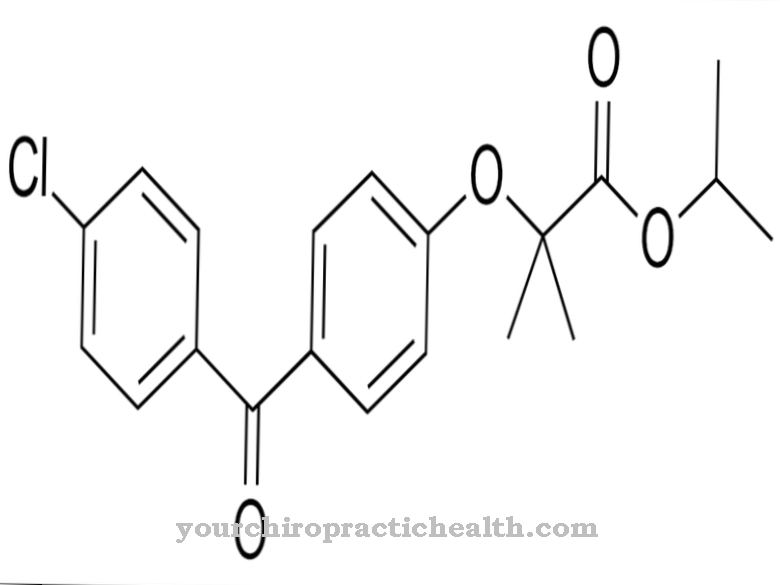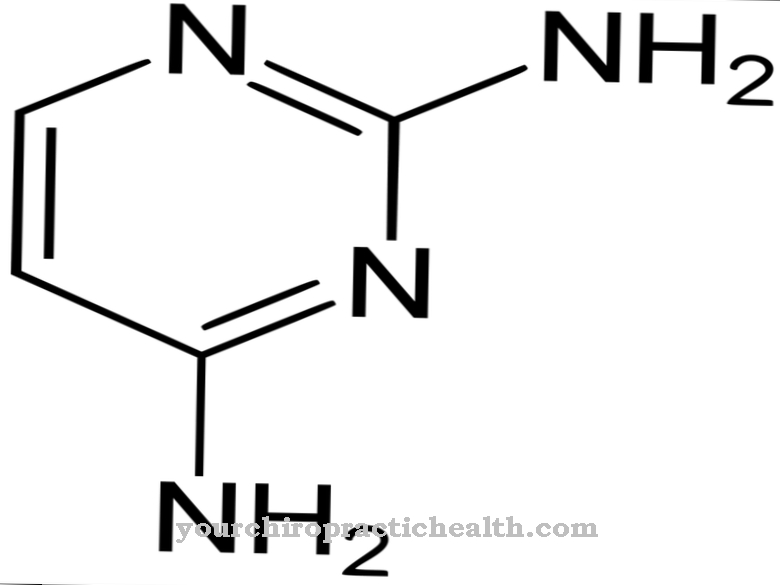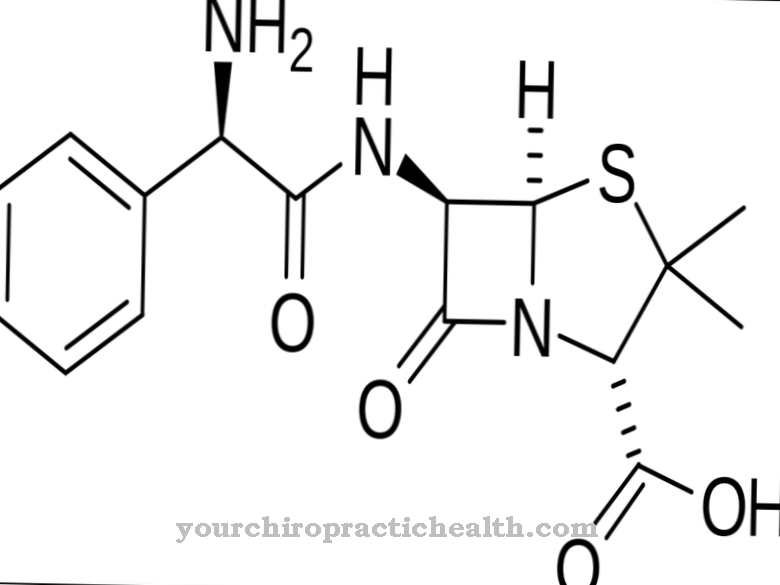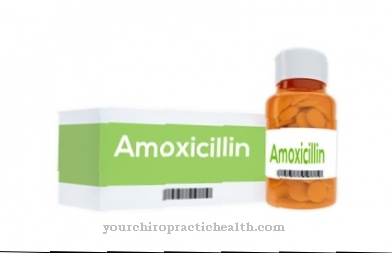Bevacizumab is one of the active ingredients for the treatment of cancer. It is a humanized monoclonal antibody.
What is Bevacizumab?

Bevacizumab is an important therapeutic agent against cancer diseases. The active ingredient is used to treat various types of cancer such as breast cancer, colon cancer, pancreatic cancer and prostate cancer.
Bevacizumab was approved in 2005. The monoclonal antibody is one of the more recent treatment agents. However, the drug has so far been used with considerable success.
In addition to the treatment of cancer, other indications are also conceivable. The remedy is sometimes administered against age-related macular degeneration of the eyes.
Pharmacological effect
Cancer is one of the most insidious diseases of today. This leads to uncontrolled growth of the body cells. In the further course of the disease, the cancer cells displace the healthy tissue more and more, which ultimately leads to the development of a malignant tumor.
In contrast to normal cells, cancer cells keep dividing. In some tumors, the cancer cells split off and spread so that they can reach other organs via the lymphatic system or the bloodstream and damage them as well. Doctors speak of daughter tumors or metastases in such cases. In this way, the cancer spreads increasingly in the body and ultimately leads to the death of the patient in the last stage.
In order for the tumor to grow, it is dependent on its own blood supply. It needs a lot of oxygen and nutrients for its rapid growth. For this purpose the neurotransmitter VEGF is produced by the tumor. This binds to a receptor, creating blood vessels.
Bevacizumab comes into play to combat the growth of the tumor. The antibody, which is produced by genetic engineering, blocks the receptors so that the VEGF messenger substance can no longer bind to them. In this way, the formation of blood vessels can be stopped. Because of this property, bevacizumab is one of the angiogenesis inhibitors. Because the supply of nutrients and oxygen is missing, the cancer tumor eventually stops growing.
An additional effect of bevacizumab is the sealing of blood vessels, which means that no fluid can escape into the neighboring tissue and the formation of edema (water retention in the body) is prevented.
Bevacizumab is also effective in the human eye. The substance in the retina prevents the growth of disturbing blood vessels. The same goes for water retention on the macula.
Bevacizumab is given by infusion. The drug gets directly into the bloodstream and spreads rapidly in the organism. Because bevacizumab has a protein structure, the substance can be gradually broken down throughout the body.
Medical application & use
Bevacizumab is used to treat various types of cancer. For example, the drug is administered in combination with chemotherapy for colon cancer or rectal cancer. The agent is also suitable for the initial treatment of breast cancer associated with metastases if it is used with the cytostatic drug paclitaxel or capecitabine.
Together with chemotherapy, bevacizumab is also used against bronchial cancer. However, the area of application is reduced to advanced daughter tumors that are no longer operable. Other types of cancer that can be treated with the monoclonal antibody are carcinomas of the fallopian tubes, ovaries or peritoneum as well as kidney cancer, prostate cancer and lung cancer.
Bevacizumab can also be administered experimentally to prevent new blood vessels from forming in the retina of the eye.The substance is used to treat macular edema or age-related macular degeneration (AMD). For this purpose, the doctor injects the bevacizumab into the vitreous humor of the eye, which leads to a growth stop and sometimes even to a decrease in the number of harmful blood vessels. However, since bevacizumab has not yet been approved for ophthalmological treatments, it has so far been used in off-label use.
Bevacizumab may only be administered by qualified medical personnel. The recommended dose is 5 to 15 milligrams per kilo of body weight. It is administered every three weeks as an infusion that lasts about 90 minutes.
Risks & side effects
About ten percent of all patients suffer from undesirable side effects after taking bevacizumab. The most common symptoms are diarrhea, constipation, nausea, vomiting, tiredness, feelings of weakness, high blood pressure, diseases of the eyes, intestinal bleeding, nosebleeds, headaches, runny nose, fever, discoloration of the skin, dry skin, skin inflammation or even a gastrointestinal rupture .
Abscesses, abdominal pain, anemia, fainting, infections, muscle weakness, breathing difficulties, dehydration or listlessness are also possible. In the worst case, there is a risk of a heart attack or a stroke.
Treatment of the eye can lead to extensive eye inflammation. If the patient's immune system is already weakened, there is a risk of soft tissue infection. Therapy must then be stopped immediately.
If the patient is hypersensitive to bevacizumab, the agent should not be used. The same applies to hypersensitivity to human or animal antibodies or if there are metastases in the brain.
The use of bevacizumab must also be avoided during pregnancy, as animal experiments have shown considerable damage to the newborns. The treatment of children and adolescents should also not be used, as there are not yet sufficient data for their therapy.
Interactions between bevacizumab and other drugs are also conceivable. For example, the substance should not be used together with other cancer drugs such as sunitinib, as otherwise there is a risk of changes in the small blood vessels.
























.jpg)



